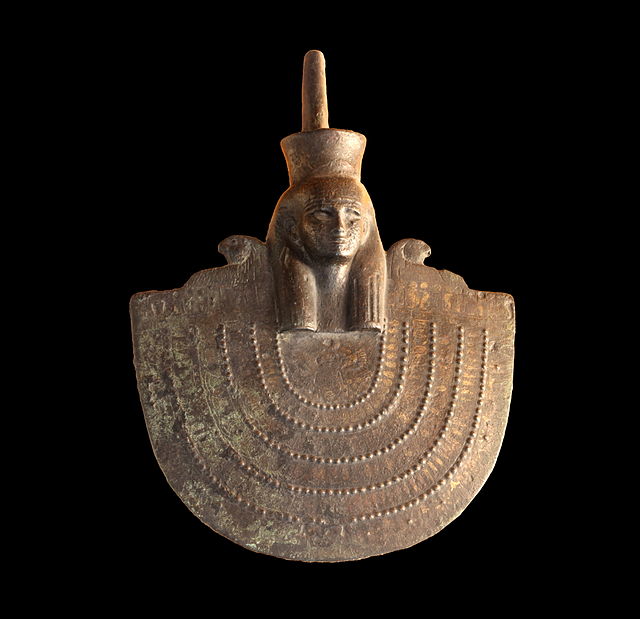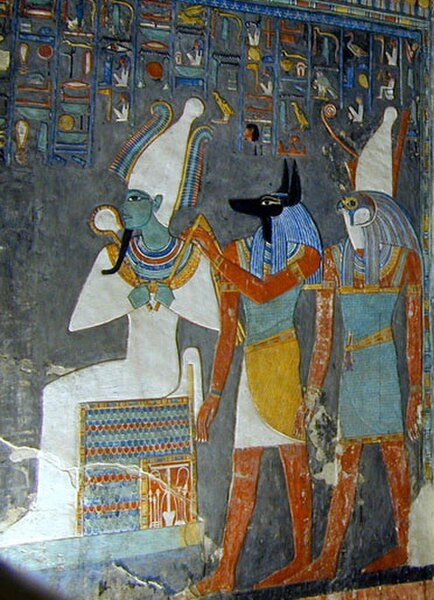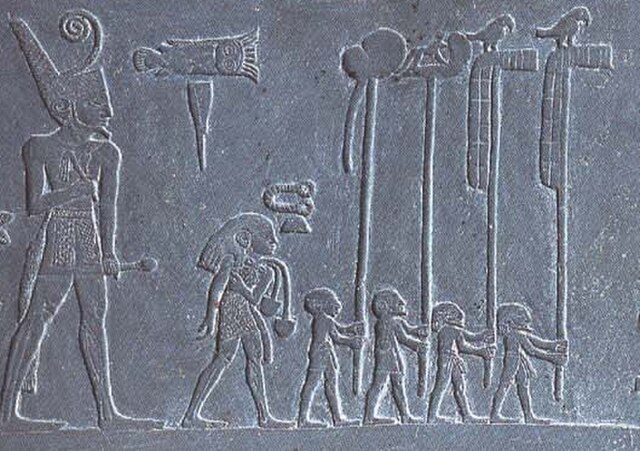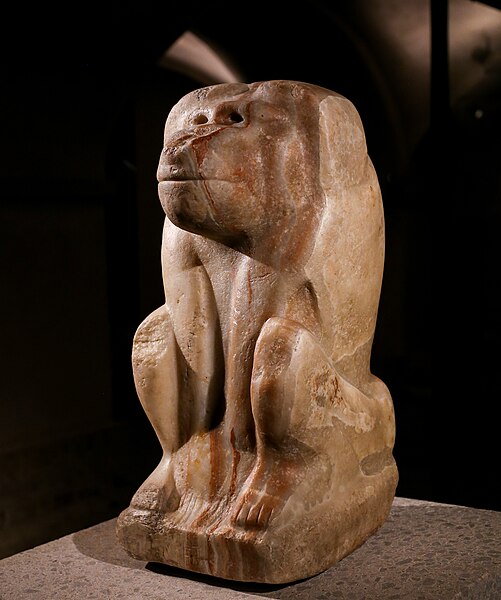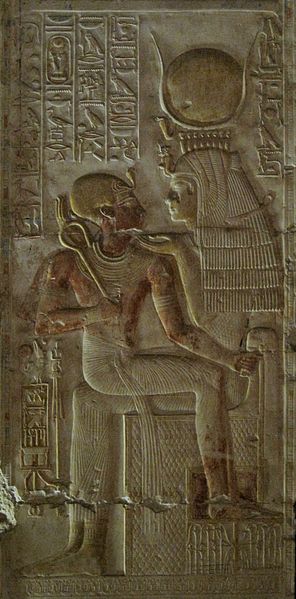Neith was an early ancient Egyptian deity. She was said to be the first and the prime creator, who created the universe and all it contains, and that she governs how it functions. She was the goddess of the cosmos, fate, wisdom, water, rivers, mothers, childbirth, hunting, weaving, and war.
Bronze statuette of Neith, wearing the Red Crown of Lower Egypt; the partially erased hieroglyphic inscriptions mention the name of Padihor - The British Museum, London
Aegis of Neith, Twenty-sixth dynasty of Egypt - Museum of Fine Arts of Lyon
Egyptian war goddess Neith wearing the Deshret crown of northern (lower) Egypt, which bears the cobra of Wadjet
Statuette of Neith - Louvre
Ancient Egyptian deities are the gods and goddesses worshipped in ancient Egypt. The beliefs and rituals surrounding these gods formed the core of ancient Egyptian religion, which emerged sometime in prehistory. Deities represented natural forces and phenomena, and the Egyptians supported and appeased them through offerings and rituals so that these forces would continue to function according to maat, or divine order. After the founding of the Egyptian state around 3100 BC, the authority to perform these tasks was controlled by the pharaoh, who claimed to be the gods' representative and managed the temples where the rituals were carried out.
The gods Osiris, Anubis, and Horus in the Tomb of Horemheb (KV57) in the Valley of the Kings
Narmer, a Predynastic ruler, accompanied by men carrying the standards of various local gods
Statue of the baboon god Hedj-Wer, inscribed with the name of king Narmer
Isis, a mother goddess and a patroness of kingship, holds Pharaoh Seti I in her lap.


